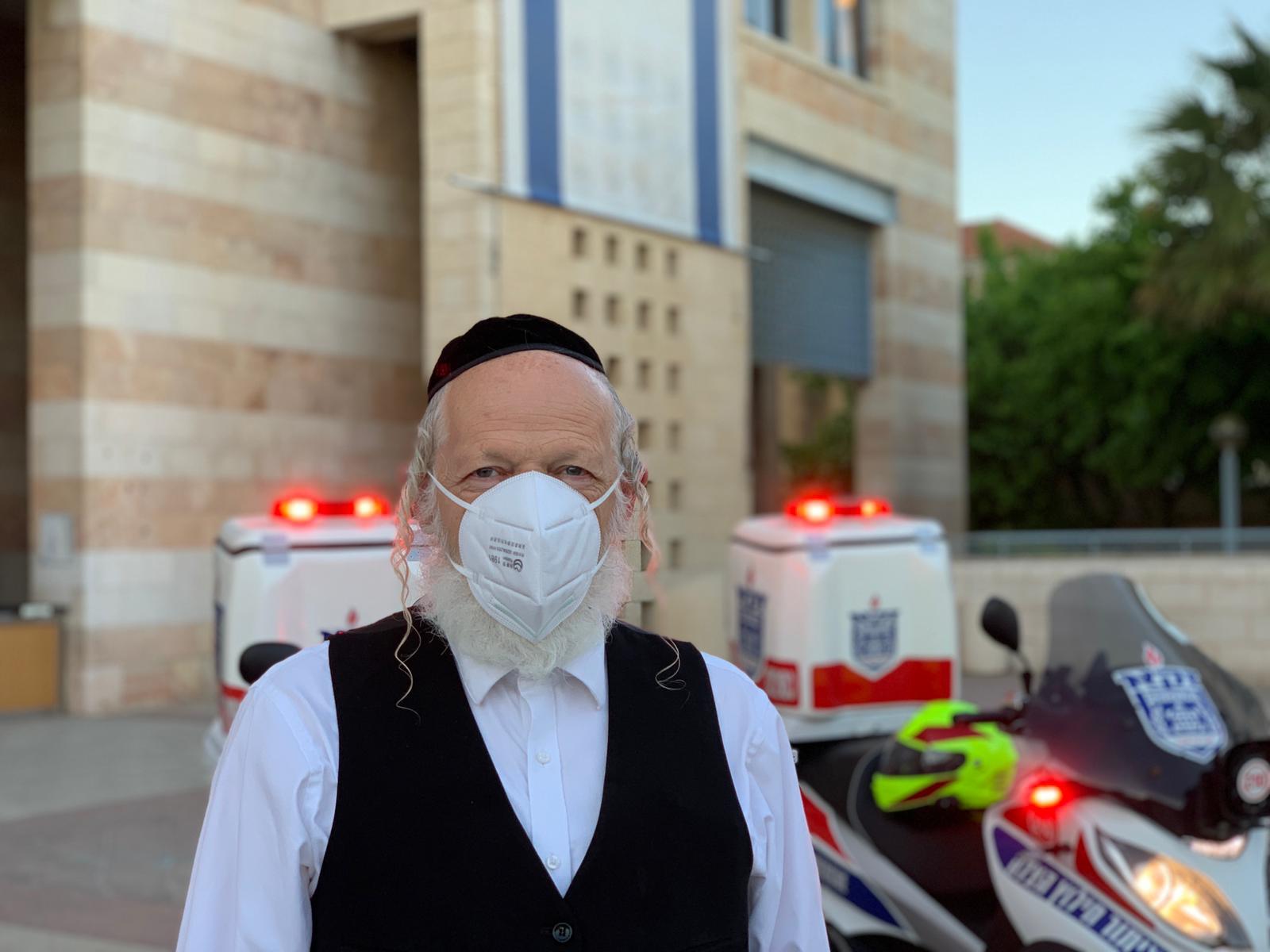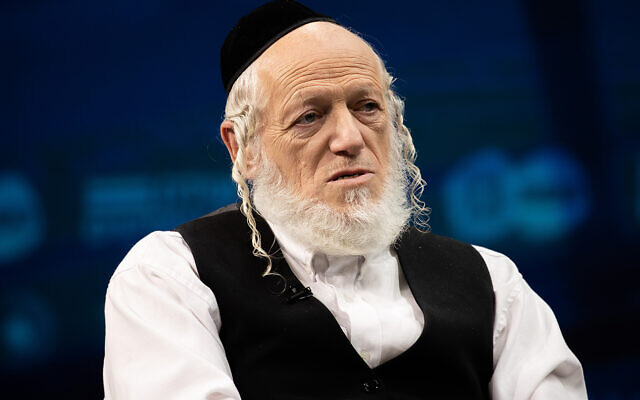ZAKA emergency group co-founder accused of multiple cases of rape, sexual abuse
The co-founder and chairman of the ZAKA volunteer emergency response group was accused Thursday of sexual assault, rape, and abuse by six people in a report by the Haaretz daily, which said there are likely many more cases.
The allegations against Yehuda Meshi-Zahav were made by both men and women, some of whom were minors at the time of the alleged events.
Meshi-Zahav is a prominent figure in the ultra-Orthodox community who earlier this month was awarded the Israel Prize’s lifetime achievement award. ZAKA is a major part of Israel’s emergency response services at home and abroad.
Meshi-Zahav took advantage of his status, power, money, and even the organization he heads to commit sexual assault, the Haaretz report said.
One alleged victim said he forcibly undressed her and raped her after offering financial aid. The woman said that while Meshi-Zahav forced himself on her, he threatened, “If you talk, a ZAKA jeep will run you over.”
Another said Meshi-Zahav repeatedly abused him when he was a teen, only realizing years later he was his “escort, a prostitute in the full sense of the word,” he told Haaretz.
The report said several other women have testified that he masturbated in front of them and touched them sexually.
Meshi-Zahav denied the allegations, telling the paper the claims “are baseless” and will cause “irrevocable damage” to his good name.
Of the six allegations reported, the earliest is from 1983, and the latest from 2011. The report added that many residents of several ultra-Orthodox neighborhoods in Jerusalem knew of Meshi-Zahav’s actions but did not say anything or report him to authorities.
At least one case reached police, but was closed in 2014 due to a lack of evidence.
The case also involved Meshi-Zahav’s brothers, Moshe and Rami. Rami was eventually convicted of raping a relative and imprisoned, the report said.
Moshe and Yehuda were suspected of assaulting 16-year-old girls, and Yehuda was suspected of rape, which he denied. Moshe fled the country after the case was opened, returned a few months ago, and died shortly after.
The investigators turned up one alleged rape victim, a woman in her 20s, but she refused to file a complaint against Meshi-Zahav, as did the other women he was suspected of assaulting in the case. The investigation was closed and its existence was not made public.
Magen for Jewish Communities, a non-profit that works to support survivors of sexual abuse, said the alleged assaults were especially shocking due to Meshi-Zahav’s community standing.
“It’s always incredibly painful to hear terrible stories of sexual abuse by a trusted figure in a victim’s life,” the group’s director, Shana Aaronson, told The Times of Israel. “In the case of Yehuda Meshi-Zahav, many in the community find it incomprehensible to imagine that a man who is so well-known and beloved could be capable of such horrific acts against innocent and vulnerable children and adults.”
“As difficult as it is to hear these allegations, it is far more painful to have experienced them. As a community, we need to rally around the victims whose lives have been devastated by not only the abuse, but the secondary trauma of knowing that their abuser is known and heralded by many as a hero,” Aaronson said.

Earlier this month, Meshi-Zahav was declared a winner of the Israel Prize’s lifetime achievement award for his contributions to Israeli society.
Education Minister Yoav Gallant announced that the prize would go to Meshi-Zahav for his decades of work in ZAKA.
The prize selection committee said in a statement that Meshi-Zahav has made an “outstanding” contribution to advancing assistance at disaster events and creating unity in Israeli society while having “a sense of purpose and a true belief in the need to build bridges and hold dialogue.”
For three decades now Meshi-Zahav has led Zaka, which has become an essential element of Israeli’s emergency response operations at home as well as abroad, the statement said, and he “is an example and role model for the spirit of volunteering in Israeli society in all its forms.”
Meshi-Zahav also made headlines in January when his parents both died of COVID-19 within days of each other and less than a month after his younger brother died of a different cause.
He was a vocal critic of some of the ultra-Orthodox leadership during the pandemic, as some prominent community figures downplayed the virus, including in an October interview with The Times of Israel.
Founded in 1989, ZAKA is one of Israel’s most recognizable emergency response groups and has responded to various disasters in other countries.
In addition to providing emergency response services and assisting in search and rescue operations, ZAKA also helps in the grim task of finding and identifying body parts following terror attacks, air crashes and other disasters.

No surprise considering his brother is a fugitive wanted for molesting who's hiding in South America & some ZAKA employees have been molesters which was covered up.
ReplyDeleteTimes of Israel is wrong. Moshe was a fugitive for years. Even before South America he was in Las Vegas where he escaped from there too, wanted for fraud by US authorities.
ReplyDeleteMoshe Meshi-Zahav is dead. He died a few months ago.
ReplyDelete